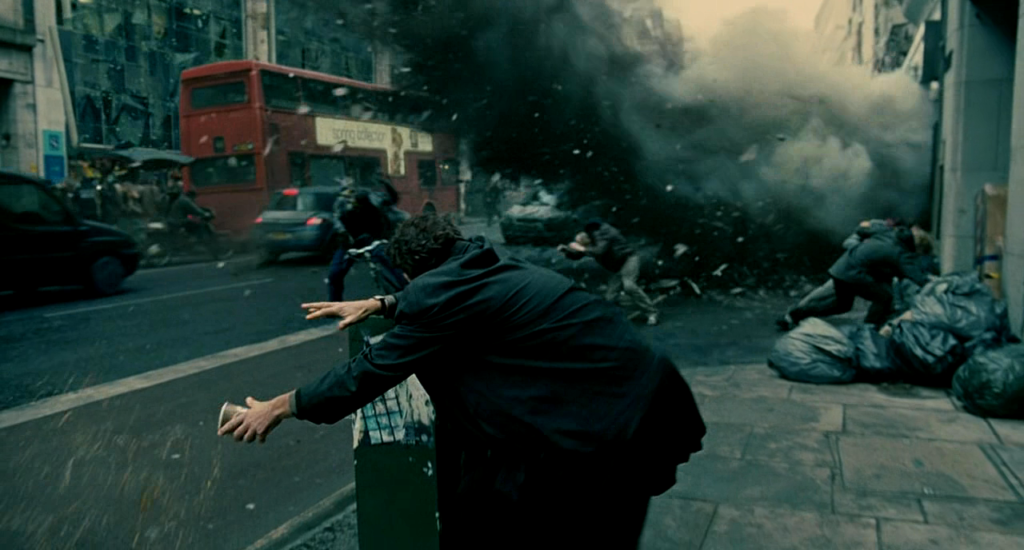Children of Men Review

Futuristic Dystopias are exciting to imagine, and there’s a certain thrill to seeing filmmakers execute a vision of what could be. Alfonso Cuarón, however, ruins all that fun in “Children of Men.” The world in 2027 is bleak, chaotic and hopeless, and the Mexican-born, London-based director puts us in the thick of the mayhem.
Based on the book by P.D. James, the film takes place in world that hasn’t seen a child born in 18 years. Great Britain, one of few first world countries standing, tries desperately to cling to its identity by aggressively detaining and deporting refugees. A resistance movement of citizens against these policies has been branded as terrorists and is at war with the government. Theo (Clive Owen) is an ambivalent bureaucrat who’d prefer to stay out of it, but that changes when his estranged wife (Julianne Moore), leader of the militant resistance group, the Fishes, shows up looking for help.
Cuarón tells this story in the trenches. With elaborate sets and a ton of handheld camerawork, he and cinematographer Emmanuel Lubezki create a sense that they’re documenting the story, like a camera crew following Theo and his various companions. With long, continuous takes, the action sequences have an absolutely epic scale to them and an “in real time” energy that feels completely organic.
The stakes of the movie get bigger and bigger as it moves along. At first, Theo discovering that the young woman he’s helping transport (Clare-Hope Ashitey) is pregnant appears as a curious plot wrinkle, but by the end, Kee and her baby’s survival is the only thing that matters; every aspect of the film slowly begins to orient toward and revolve around her.
Unlike most apocalyptic-type stories, “Children of Men” stands out in that it has a very real physical embodiment of hope – hope being crucial to any story about resistance. Many films of this classification have somewhat ambiguous, big-picture stakes, or they embody those stakes in a McGuffin like a person or object that doesn’t quite hit home. That’s not a challenge for this movie, plus Cuarón expends some effort in stressing the importance and miraculousness of this hope.
Although not a film that relies a whole lot on performance, there are a lot of likable characters in the form of everyday people acting heroically. Michael Caine’s Jasper, Kee’s midwife (Pam Ferris) and even a quirky gypsy woman (Oana Pellea) are among some of the selfless characters that build emotional investment in the story’s outcome. Owen is mostly a body in the lead role, but with stoicism his foremost trait as an actor, watching Theo become more enmeshed in what’s happening mirrors the audience’s experience.
Everything else could be completely tossed aside and “Children of Men” would still stand as a clinic in long-take action filmmaking. The choreography of the war and chaos is stunning, especially in all the refugee camp scenes in the final half hour. Every single beat of these takes enhances the experience of the film, creating an astounding realism. That kind of detail (and his involvement in the editing process) explains why Cuarón might not be prolific, but his films almost never disappoint.
4.5/5 Stars
Children of Men
Directed by Alfonso Cuarón
Written by Alfonso Cuarón & Timothy J. Sexton, David Arata, Mark Fergus & Hawk Otsby, P.D. James (novel)
Starring: Clive Owen, Clare-Hope Ashitey, Julianne Moore, Michael Caine, Chiwetel Ejiofor




0 Comments
You can be the first one to leave a comment.